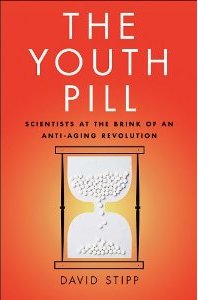January 23rd, 2011 by admin in Opinion, True Stories
No Comments »

This is a guest post by Dr. John Schumann.
**********
In 2011, the first wave of baby boomers will turn 65 years old. Sixty-five still has currency because that’s the age at which non-disabled Americans are eligible to be covered under the Medicare program (now itself having reached middle age).
As our economy continues to recover (hopefully) from the Great Recession, the entrance of millions of Americans to the Medicare rolls over the next decade and a half will be a formidable planning challenge. Look at this chart to see how the baby boomers population has surged:

So is the promise of healthcare reform (the “PPACA“), which will enlarge Medicaid by an additional 16 million Americans — about half of the projected growth in coverage for those currently uninsured.
A couple of recent patient encounters got me thinking about these phenomena, and how we are very much in historically uncharted territory. Never have we had so many living so well for so long. We have an entire generation of people reaching “seniority” who will continue to want the most out of life, without many guideposts on how to achieve it. Read more »
*This blog post was originally published at ACP Internist*
July 17th, 2010 by Harriet Hall, M.D. in Better Health Network, Book Reviews, News, Opinion, Research
No Comments »

 Wouldn’t it be great if we could find a way to prolong our lives and to keep us healthy right up to the end? Ponce de León never found that Fountain of Youth, but science is still looking. What are the chances science will succeed? How’s it doing so far?
Wouldn’t it be great if we could find a way to prolong our lives and to keep us healthy right up to the end? Ponce de León never found that Fountain of Youth, but science is still looking. What are the chances science will succeed? How’s it doing so far?
In his new book The Youth Pill: Scientists at the Brink of an Anti-Aging Revolution, David Stipp tries to answer those questions. From the title of the book, I expected hype about resveratrol or some other miracle pill, but instead it is a nuanced, levelheaded, entertaining, informative account of the history and current state of longevity research. It makes that research come alive by telling stories about the people involved, the failures and setbacks, and the agonizingly slow process of teasing out the truth with a series of experiments that often seem to contradict each other.
Anti-aging can mean several things. Extending the average lifespan is not the same as extending the maximum lifespan. Extending lifespan is not the same as preventing the degenerative changes characteristic of aging. Read more »
*This blog post was originally published at Science-Based Medicine*





 Wouldn’t it be great if we could find a way to prolong our lives and to keep us healthy right up to the end? Ponce de León never found that Fountain of Youth, but science is still looking. What are the chances science will succeed? How’s it doing so far?
Wouldn’t it be great if we could find a way to prolong our lives and to keep us healthy right up to the end? Ponce de León never found that Fountain of Youth, but science is still looking. What are the chances science will succeed? How’s it doing so far?







